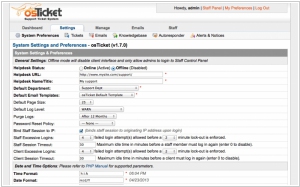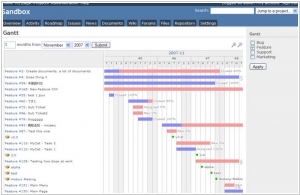OSticket vs Redmine
July 25, 2023 | Author: Michael Stromann
OSTicket and Redmine are both open-source software tools, but they have different primary purposes and functionalities. OSTicket is a ticketing system specifically designed for managing customer support and service requests. It provides a user-friendly interface for creating, tracking, and resolving tickets, making it suitable for small to medium-sized businesses seeking a simple and cost-effective solution for customer support management. On the other hand, Redmine is a flexible project management and issue tracking tool primarily focused on software development projects. It offers features like issue tracking, time tracking, project planning, and collaboration tools, making it an ideal choice for software development teams and project managers.
See also: Top 10 IT Service Desk software
See also: Top 10 IT Service Desk software
OSticket vs Redmine in our news:
2014. Redmine 2.5 impoves custom fields
Redmine, a versatile web application for project management developed using the Ruby on Rails framework, has released its latest version - Redmine 2.5.0, which is now available for download. This update brings numerous enhancements to custom fields formats, including support for text formatting, HTTP links, and more precise selection options for user and version custom fields based on roles and version status. The custom field format API has undergone a complete rewrite, so if you have any plugins that interact with it (e.g., those adding non-standard field formats), it is necessary to update them before proceeding with the upgrade. Additionally, this version introduces experimental support for Markdown formatting, a widely used syntax for text formatting.





